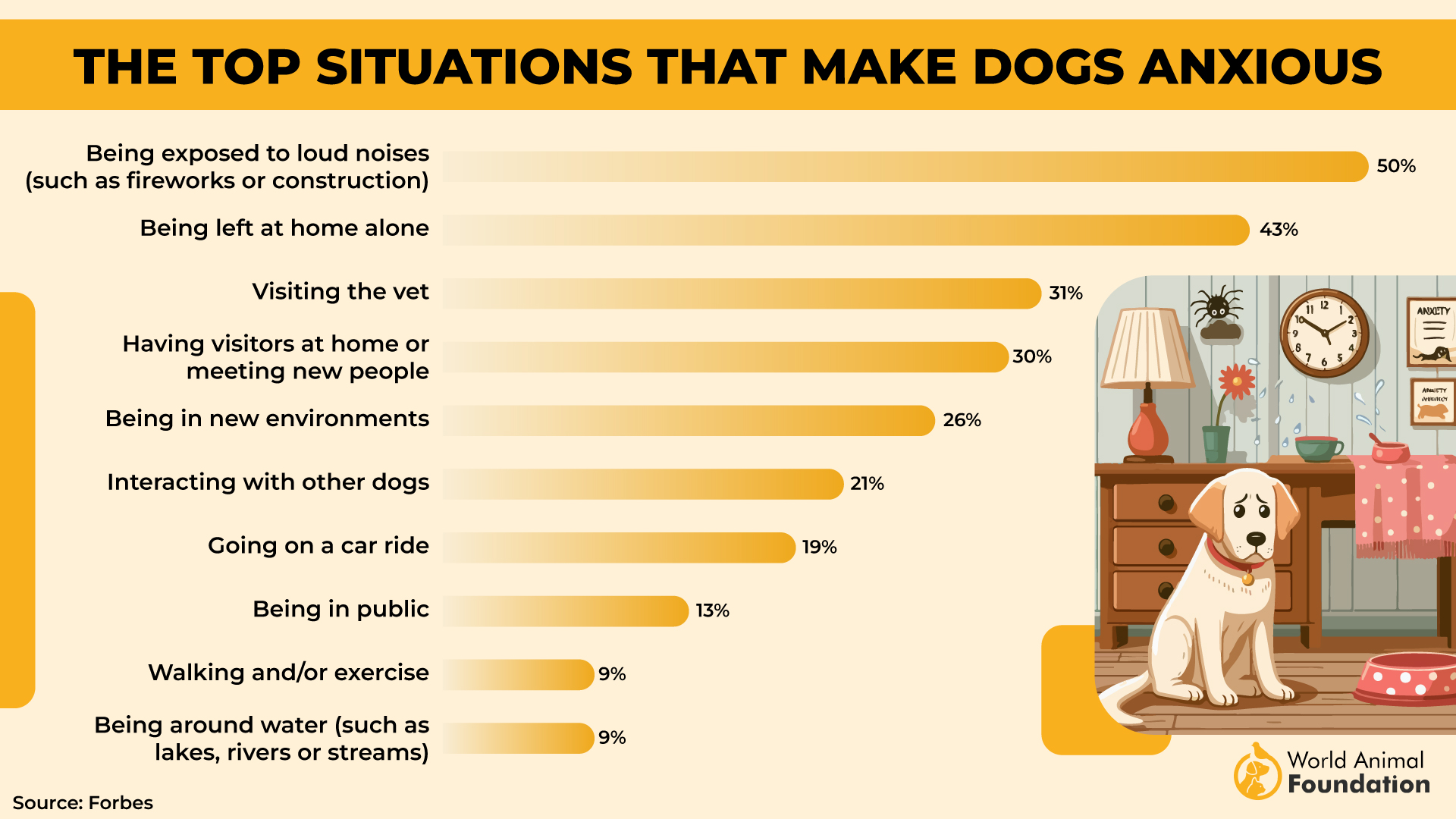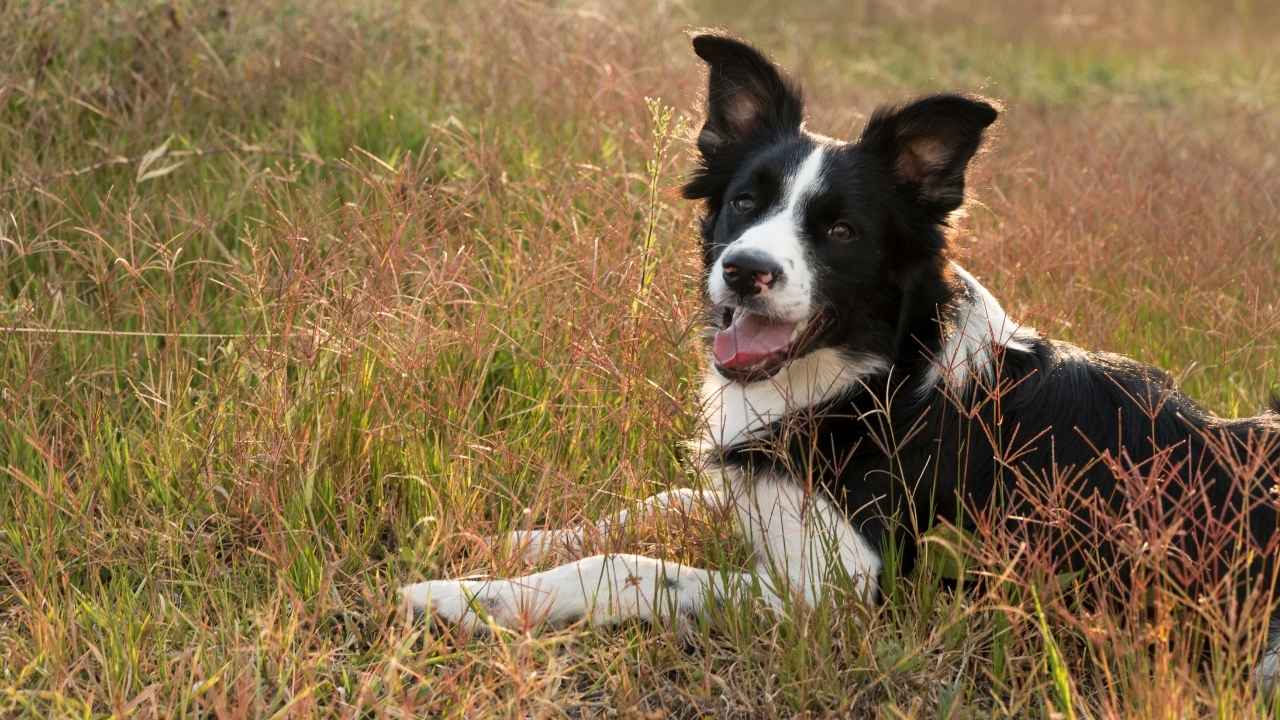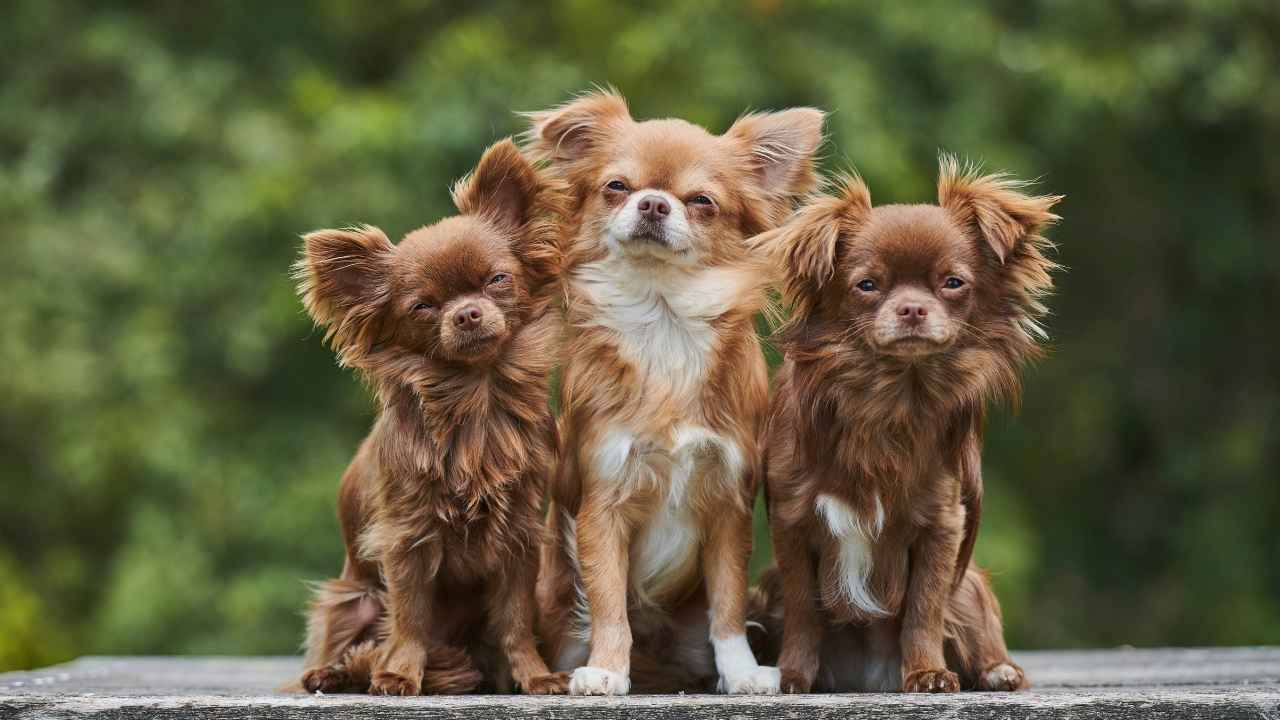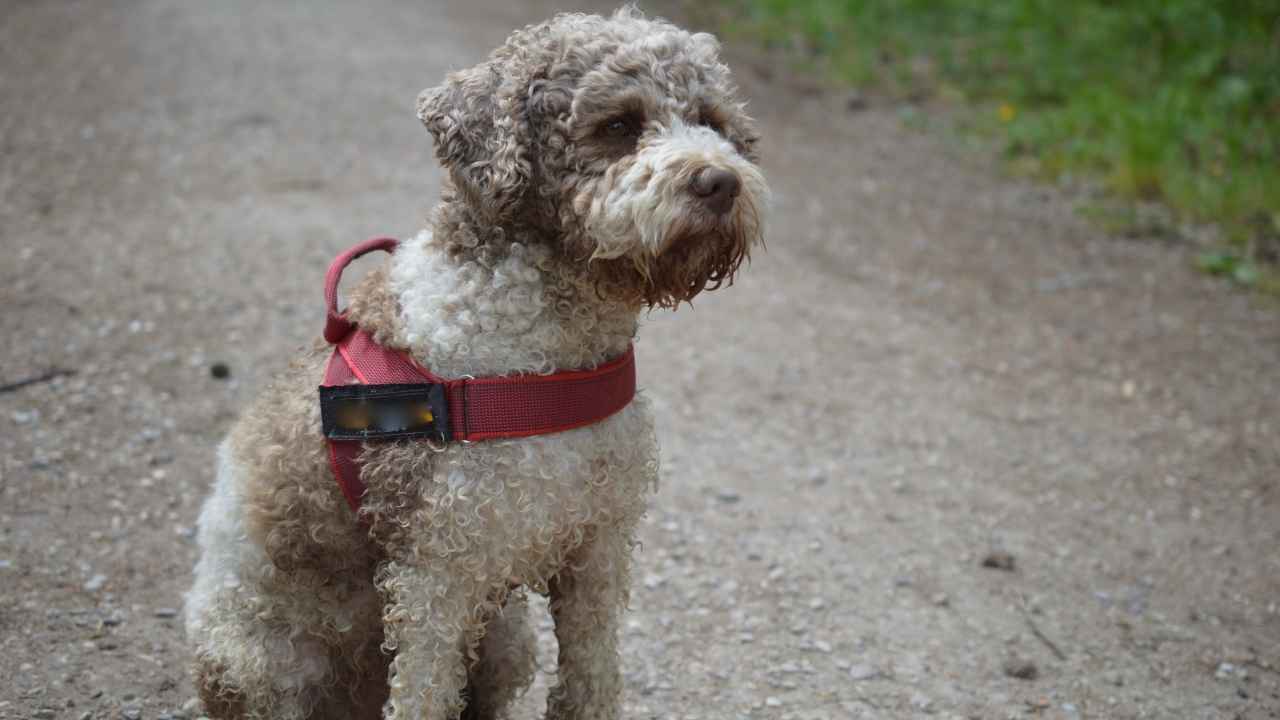Dogs, often regarded as loyal companions, can also face emotional challenges, much like humans. Anxiety in dogs is a common issue, often triggered by changes in their environment, routines, or even genetics. Some breeds are predisposed to anxiety, requiring extra care and understanding from their owners. These breeds, while offering immense love and companionship, may exhibit behaviors like excessive barking, destructive chewing, or restlessness when anxious. Understanding the specific needs of these sensitive breeds is crucial for fostering a calm and supportive environment. The following seven breeds are known for their anxiety-prone nature and the need for additional emotional support.
Watching your dog suffer from anxiety is a painful experience. Whether it’s the fear of loud noises, separation anxiety, or the anxiety-driven behaviors that seem to come out of nowhere, it can leave you feeling helpless.
What many dog owners don’t realize is that certain dog breeds are more prone to anxiety than others. While anxiety can affect any dog, breeds like the Australian Shepherd or Jack Russell Terrier are particularly susceptible to this condition. Understanding which breeds are prone to anxiety is the first step in offering the right care and support.
In this article, we’ll explore seven dog breeds that are most likely to experience anxiety and offer tips on how to help them manage it. Because your dog’s mental health matters just as much as their physical well-being.
7 Dog Breeds Prone to Anxiety
1. Australian Shepherd
The Australian Shepherd is known for its intelligence, energy, and devotion to its family. As a highly active and social breed, they thrive on mental stimulation and companionship. However, this breed is also prone to separation anxiety when left alone for long periods. As a result, they may exhibit excessive barking, destructive behaviors, and signs of distress.
Sensitivity to Separation and Noise
The breed’s attachment to their human family can make it hard for them to cope with isolation. Additionally, Australian Shepherds are sensitive to loud noises like thunderstorms or fireworks, which can trigger canine anxiety. This makes them more vulnerable to becoming anxious dogs.
As per the Hawthorne Hills, Australian Shepherds are considered a high-anxiety dog breed, and their anxiety-related behaviors can significantly affect their overall quality of life. To help these dogs, owners must focus on providing them with mental stimulation and a consistent routine to reduce their anxiety.
2. Russell Terrier
The Russell Terrier is a small, energetic, and intelligent breed, often regarded as a dedicated companion dog. Known for their playful and curious nature, these dogs thrive on both physical and mental stimulation. However, they can be particularly vulnerable to dog anxiety, especially in situations where they are left alone for long periods.
Anxiety Triggers of Russell Terriers
As per Orvis, separation anxiety is common in this breed, leading to anxious behaviors like excessive barking and destructive chewing. Russell Terriers are also prone to noise anxiety, with loud sounds such as thunderstorms often triggering distress. As a result, they can become one of the anxious dog breeds.
The Labrador Retriever, another popular companion breed, also shares similar anxiety triggers, demonstrating how certain traits in dogs, like the need for human interaction and routine, can lead to increased anxiety. Without proper management, their anxiety can interfere with their overall well-being and quality of life.
3. Border Collie
Border Collies are renowned for their intelligence, agility, and boundless energy. As working dogs, they excel when given tasks that involve both physical exercise and mental stimulation. However, this breed can be prone to severe separation anxiety if left alone for long periods, often displaying signs of distress such as excessive barking or destructive behaviors.
Attachment and Separation Anxiety in Border Collies
The Border Collie’s strong attachment to their human family members can make them vulnerable to dog’s anxiety, particularly when separated from their companions. Much like miniature schnauzers, these dogs need constant engagement to prevent boredom, which can lead to them exhibiting destructive behaviors.
In some cases, Border Collies may even develop anxiety-related behaviors, similar to those seen in mixed breeds or Spanish water dogs, if not properly managed. Ensuring they receive adequate exercise and emotional support is crucial to their well-being, as their anxiety can severely impact their quality of life.
4. Chihuahua
Chihuahuas are small but mighty dogs known for their big personalities. They tend to form deep bonds with their human family members, often becoming fiercely loyal and attached. Due to their sensitive nature, Chihuahuas are especially vulnerable to separation anxiety when left alone for extended periods.
Chihuahuas’ Attachment Affects Their Anxiety Response
This breed is also prone to anxiety disorders, such as noise anxiety, triggered by loud noises like thunderstorms or fireworks. These anxious traits can lead to behaviors such as excessive barking or canine aggression, which, if not managed, can impact their well-being. Like cavalier King Charles spaniels, Chihuahuas may require extra attention to help them prevent anxiety-driven behaviors.
As with other dogs, providing consistent mental and physical stimulation is key to alleviating a dog’s anxiety. Without the proper care, Chihuahuas, much like mixed breed dogs or Staffordshire bull terriers, can struggle with maintaining emotional balance, diminishing their overall quality of life.
5. Dachshund
Dachshunds, originally bred for exterminating badgers and badger-baiting, were also skilled at hunting smaller prey like rabbits and foxes, locating wounded deer, and even taking on formidable game such as wild boar and wolverines in packs. As per Dachshund Health UK, while their hunting instincts make them determined and courageous, they are prone to developing separation anxiety due to their deep attachment to their owners.
Role of Environment and Stimulation in Managing Dachshund Anxiety
Their anxiety can be exacerbated by environmental factors like inconsistent routines or insufficient interaction. Despite not being classified as herding dogs, Dachshunds are as determined and focused as energetic dogs like German Shepherds.
Recognizing common anxiety triggers and closely monitoring your pet’s anxiety level can prevent stress from turning into destructive behaviors. Providing ample stimulation tailored to their instincts reduces the breed risk of anxiety and ensures they thrive both mentally and physically.
6. Bichon Frise
The Bichon Frise is an affectionate and playful breed, known for its cheerful disposition and adaptability. While not as high-energy as some active dogs, they thrive on companionship and attention, making them sensitive to isolation. This sensitivity can place them among the most anxious dogs, particularly when left alone for extended periods.
Managing Bichon Frise Anxiety Triggers
Their severe anxiety is often triggered by unfamiliar dogs, noise sensitivity, or encounters with strange animals, which can exacerbate anxiety in stressful environments. Unlike hunting dogs or breeds like the German Shorthaired Pointer, the Bichon Frise is primarily a companion dog, meaning their needs center around emotional connection rather than physical tasks.
These breed differences highlight the importance of addressing their unique triggers. Early socialization at a young age can reduce anxiety, ensuring they feel secure and confident even in unfamiliar settings.
7. Lagotto Romagnolo
The Lagotto Romagnolo, often praised for its truffle-hunting expertise, is a highly intelligent breed with a strong work ethic. However, this intelligence can sometimes contribute to acute sensitivity in their environment. They may perceive threats in everyday situations, which can lead to heightened anxiety responses.
Recognizing Lagotto Romagnolo’s Anxiety Triggers
Known for their adaptability, Lagottos may still display signs of anxiety, particularly in overstimulating or unfamiliar surroundings. Their subtle herding instincts and keen awareness can amplify stress when faced with disruptions to their routine. This breed has a higher prevalence of anxiety-related behaviors compared to less sensitive breeds, making early training and socialization essential.
Recognizing risk factors, such as a lack of mental stimulation or abrupt environmental changes, can prevent undue stress. Proper attention to behavior diagnoses ensures these loyal dogs live balanced, anxiety-free lives.
Conclusion
Caring for particular breeds prone to anxiety requires understanding their unique traits and needs. From intelligent dogs needing mental stimulation to those affected by fear-based anxiety, every breed exhibits behaviors rooted in their environment and instincts.
Recognizing signs of distress in other breeds helps create a nurturing dog’s environment tailored to their well-being. Whether they exhibit behaviors like restlessness or withdrawal, addressing anxiety fosters trust and happiness. By committing to compassionate care and recognizing individual needs, owners can ensure that all dogs, regardless of breed, live fulfilling lives free from undue stress.
In conclusion, while all dogs may experience anxiety at different points, certain breeds are more predisposed to this condition, necessitating extra care and support from their owners. Understanding these breeds’ specific needs can lead to a fulfilling companionship and improve their overall well-being. Enhanced attention to training, socialization, and creating a calm environment can help alleviate anxiety symptoms in these breeds. Ensuring they have ample exercise, mental stimulation, and, when necessary, consulting a veterinarian for professional advice can make a significant difference in their quality of life and help them thrive as cherished family members.









